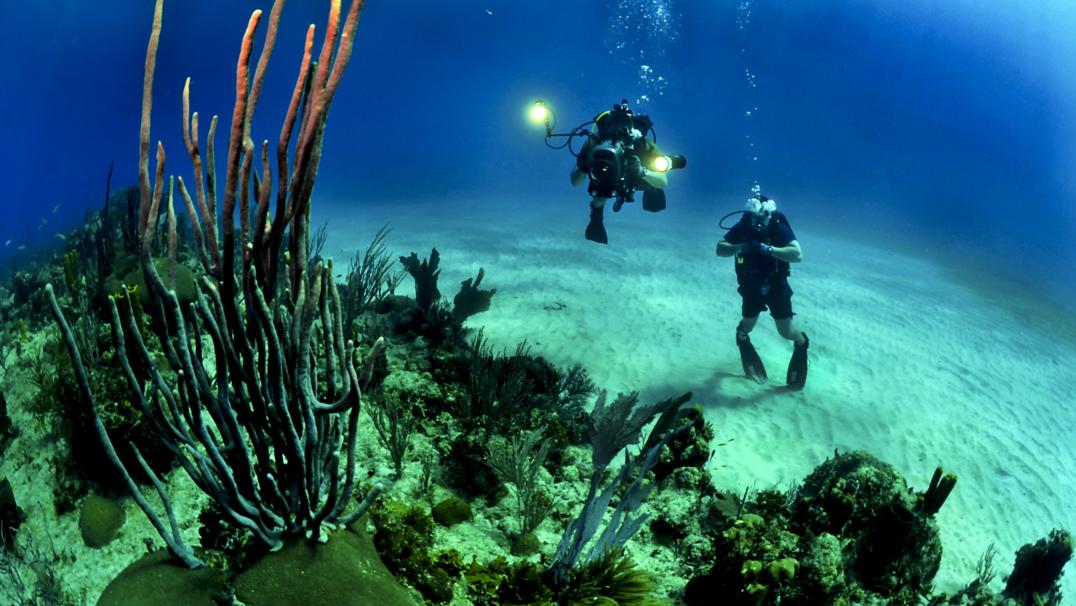Do you want your college major to take you under the sea? Marine biology is the study of all types of sea creatures, ranging from large ocean animals to microscopic organisms. As a marine biologist, you will have the opportunity to shape our future when it comes to solving some of the world’s most complex environmental issues. Not every college offers a marine biology major, so we have done some diving to identify a few programs around the country for you and highlighted their key features.
1. Duke University
Durham, NC
Duke’s program, located at their marine lab in Beaufort, NC, prioritizes intimate class size, concentrated research experiences, involvement in field work, and travel classes to the southern tip of the Outer Banks. Many students who pursue this program receive job offers in marine science and conservation. However, students have also used their marine science foundation as a stepping stone into other fields including medicine, law, engineering, public service, education, and management.
2. Boston University
Boston, MA
BU’s marine biology program provides training for both undergraduate and graduate students. The professors of these courses serve as leaders in their subdisciplines, including conservation genetics of marine organisms, sensory biology, evolution and development of marine organisms, marine microbial ecology, marine communication ecology, and marine conservation science. Students will benefit from BU’s formal partnerships with the New England Aquarium, the Stellwagen Bank National Marine Sanctuary, the Sea Education Association, and a variety of government and non-governmental marine conservation organizations.
3. University of Maine
Orono, ME
University of Maine not only offers undergraduate degrees in marine science, but allows the option to specialize in aquaculture, marine biology, or physical science. Their program also offers graduate degrees in marine biology, marine policy, and oceanography. With a large faculty for this niche major, the School of Marine Sciences represents the largest concentration of marine experts in the state of Maine.
4. Oregon State University
Corvallis, OR
Oregon State University stresses the importance of core biological science classes when it comes to their marine biology major. The program is paired with field and laboratory coursework that covers topics such as ecology, conservation, and oceanography. The program prioritizes research and includes experiential courses completed in residence at the OSU Hatfield Marine Science Center in Newport, Oregon. Their program provides excellent preparation for those who hope to continue on to graduate school for marine biology.
5. University of Hawaii
Honolulu, HI
The Hawaii Institute of Marine Biology (HIMB) continues to be a leader when it comes to education in tropical marine biology. This program works to research, comprehend, and conserve tropical marine ecosystems. Within the School of Earth Science and Technology (SOEST) at the University of Hawaii at Manoa, HIMB boasts its advance understanding of Hawaii’s marine and coastal biodiversity. Students who study at the University of Hawaii will have access to 9 different labs that specialize in areas such as spatial dynamics of marine populations, coral reefs, quantitative marine ecology, movements of sharks and fishes, bioacoustics, microbial genetic diversity, coastal ecology, marine biodiversity, and so much more.
6. University of New England
Biddeford, ME
At the University of New England, they believe that a career in the marine sciences begins with ample hands-on experience. The UNE Department of Marine Sciences offers students extensive interaction in a variety of marine environments and research facilities. Their program highlights the importance of internships, field research, and experiential learning. (Perfect for anyone eager to get their feet wet right away).
7. University of New Hampshire
Durham, NH
Historically, the University of New Hampshire has excelled in the field of marine biology and marine science. With UNH’s proximity to coastal habitats, students are consistently working in the lab or participating in field work. Some of the marine biology facilities at UNH include the Coastal Marine Laboratory at the Judd Gregg Marine Research Complex in New Castle, the Jackson Estuarine Lab at Adams Point on the Great Bay, the Anadromous Fish and Aquatic Invertebrate Research Lab in Durham, and the Shoals Marine Lab on Appledore Island. Student success has been made possible with essential laboratories, equipment, and infrastructure necessary for optimal research.
8. University of North Carolina
Chapel Hill, NC
The Department of Marine Sciences at the University of North Carolina educates students on the ways in which marine resources can be utilized and protected. In this program, students learn how to predict the interactive processes that regulate marine systems and connect them to other components of Earth’s systems. Another goal of UNC’s marine biology curriculum is to measure changes in marine systems and evaluate the consequences for humans and other organisms, as well as inform the decisions to policy makers and legislators to ensure preservation of marine resources.
9. University of Tampa
Tampa, FL
University of Tampa’s course includes substantial exposure to biological, chemical, and physical aspects of marine science. The curriculum includes lab experiences, weekend field trips to the Florida Keys, and study abroad courses to locations such as Honduras. The University of Tampa’s waterfront Marine Science Field Station has a wet-lab, a dry-lab, and direct access to Tampa Bay. Students also have access to four different research vessels that provide all the equipment necessary for successful exploration and learning.
10. Eckerd College
Saint Petersburg, FL
At Eckerd College, the marine science program is integrated into the liberal arts curriculum, giving students a well-rounded education. The purpose of their program is to understand the marine environment and its significance to humankind. The program itself offers four areas of specialization including marine biology, marine chemistry, marine geology, and marine geophysics. Their ideal waterfront location is near the Gulf of Mexico where students have the ability to utilize the surrounding coastal environments in their studies.
There’s a sea of opportunity out there when it comes to studying marine biology. Good luck on your college search, we’re sure it will go swimmingly!

